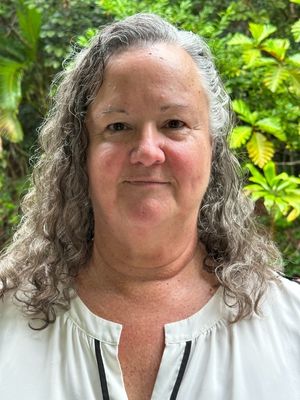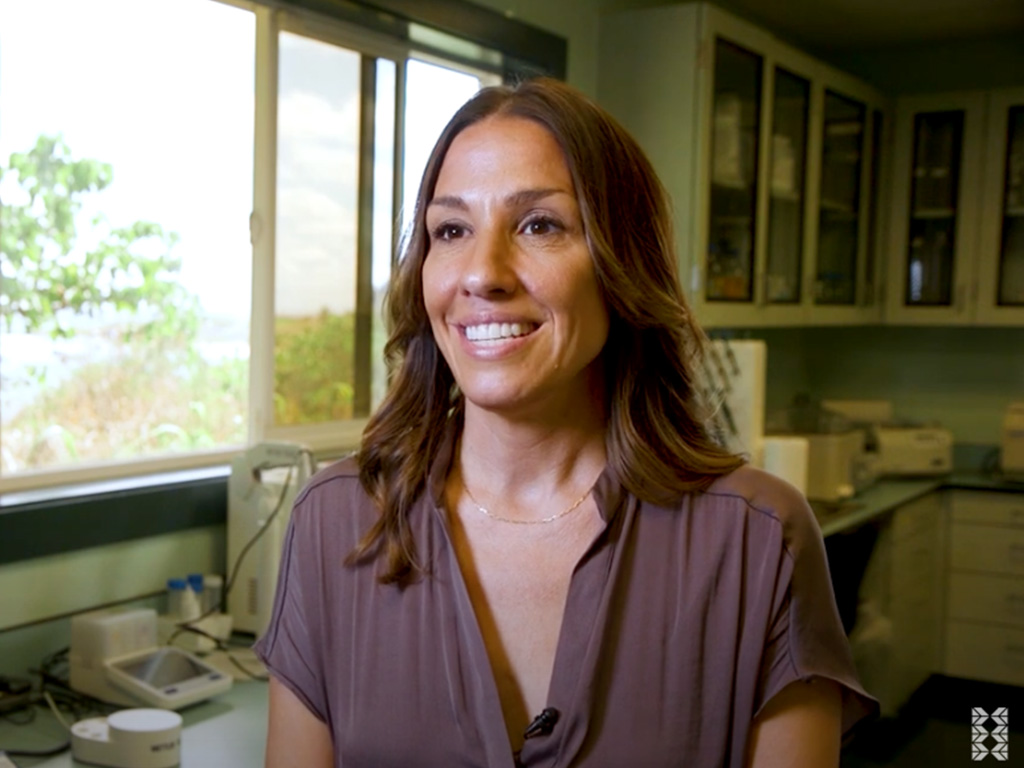
Aloha from the Dean!
Carolyn Jones, Ph.D.
Dean, College of Natural and Computational Sciences
Aloha and e komo mai to the College of Natural and Computational Sciences at Hawai‘i Pacific University.
Our programs span the sciences, from marine biology and environmental science to computer science, engineering, health sciences, and mathematics, preparing students to solve real-world challenges with creativity, precision, and purpose. At the heart of our college lies a deep commitment to scientific discovery, technological innovation, and environmental stewardship—all rooted in the unique natural and cultural landscape of Hawai‘i.
HPU’s location in the Pacific—one of the most biodiverse and dynamic regions on Earth—provides our students with unmatched opportunities for hands-on research and fieldwork. Whether you’re analyzing a coral reef ecosystem, launching a rocket, studying human disease, tracking marine plastic debris, collaborating in a hackathon, or exploring the impact of climate change on island communities, you’ll be immersed in a culture where science is not just studied, but lived.
Our faculty are not only educators, but also active researchers and mentors, dedicated to fostering a learning environment where inquiry thrives in small classes and with individualized attention. In our classrooms, our new labs, in the field, and aboard the Kaholo, students are collaborators—challenged to think critically, communicate effectively, and lead with integrity.
We are proud to be shaping the next generation of scientists, engineers, healthcare professionals, and problem-solvers—leaders who will make a global impact while staying grounded in the values of aloha, pono, and kuleana.
Whether you are a prospective student, a parent, a potential collaborator, or a curious mind, I invite you to explore all that the College of Natural and Computational Sciences has to offer.
Mahalo for your interest, and I look forward to seeing you on campus.
Carrie Jones, PhD
Acting Dean, College of Natural and Computational Sciences
Hawai‘i Pacific University
College of Natural and Computational Sciences
EXPLORING THE WONDERS, UNCOVERING ANSWERS
Explore Hawaiʻi's rich environment and the unique opportunities that await you, all while pursuing your degree. Get hands-on experience in applying concepts through laboratories and project-based courses across all departments throughout our college. Our flexible and extraordinary degree programs will get you where you need to be. Whether at the state-of-the-art Downtown Science Labs, Biomechanical Engineering research lab, Makapu'u marine research campus, or at sea on the educational research vessel Kaholo, it will be a study spot you will never forget. HPU's College of Natural and Computational Sciences is committed to ensuring you are prepared for your next destination. Are you ready to join our ʻohana and start your new adventure?
PROGRAMS OF STUDY
Undergraduate Programs
Department of Mathematics
Graduate Programs
Department of MathematicsWHY College of Natural and Computational Sciences?
Like you, the instructors of the College of Natural and Computational Sciences are driven by curiosity. We have 45 full-time faculty split among three departments: the Department of Computer Science and Engineering, the Department of Mathematics, and the Department of Natural Sciences.
In collaboration with a strong roster of adjunct faculty – many of whom are working experts in their fields – our full-time faculty deliver nine bachelor degree programs, including Biochemistry, Biology (General and Human and Health Sciences), Chemistry, Computer Science, Environmental Science, Environmental Studies, Marine Biology, Mathematics (Pure, Applied, and Education), and Oceanography. Some of our majors have two or more concentrations which will provide you with further depth and choice as well as greater opportunity to match your academic program with your specific interests and career goals. At the same time, many of our Bachelor programs have accompanying Minor degrees that provide students breadth beyond their main field of study.


